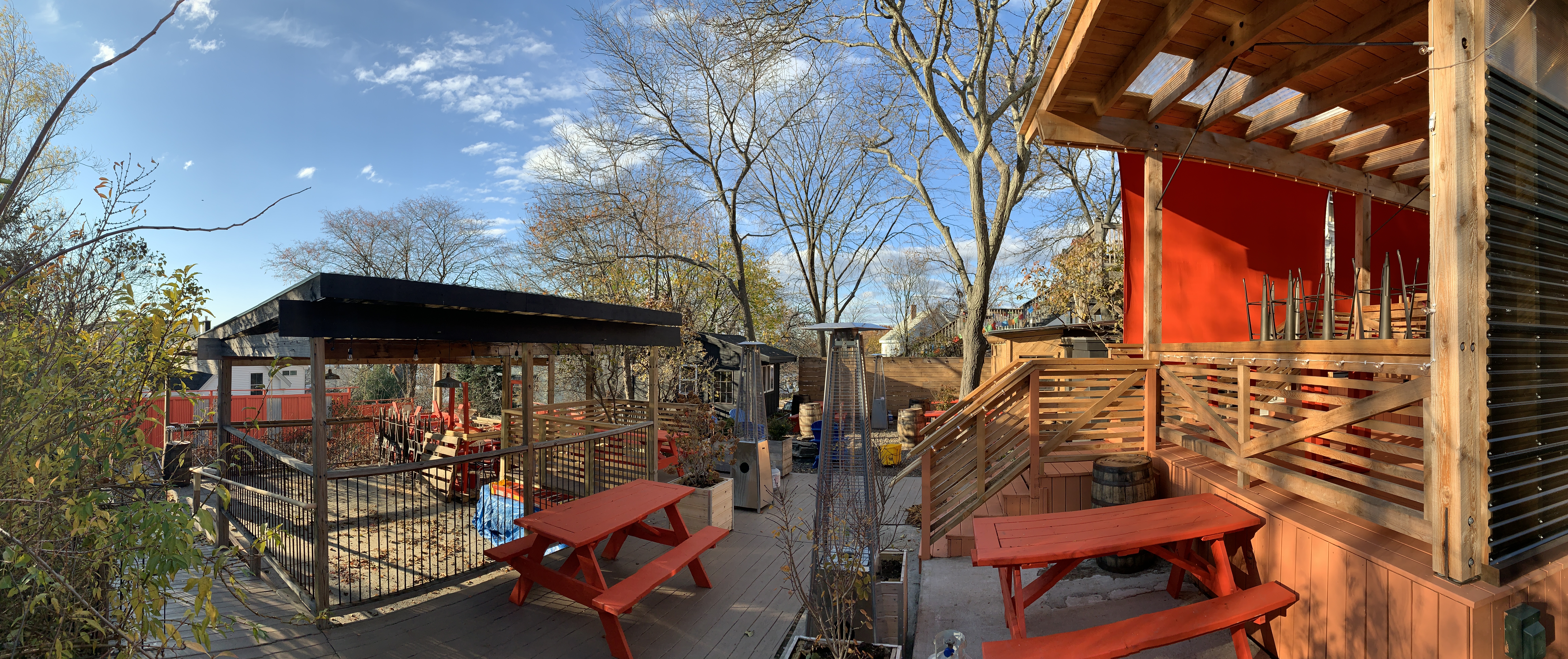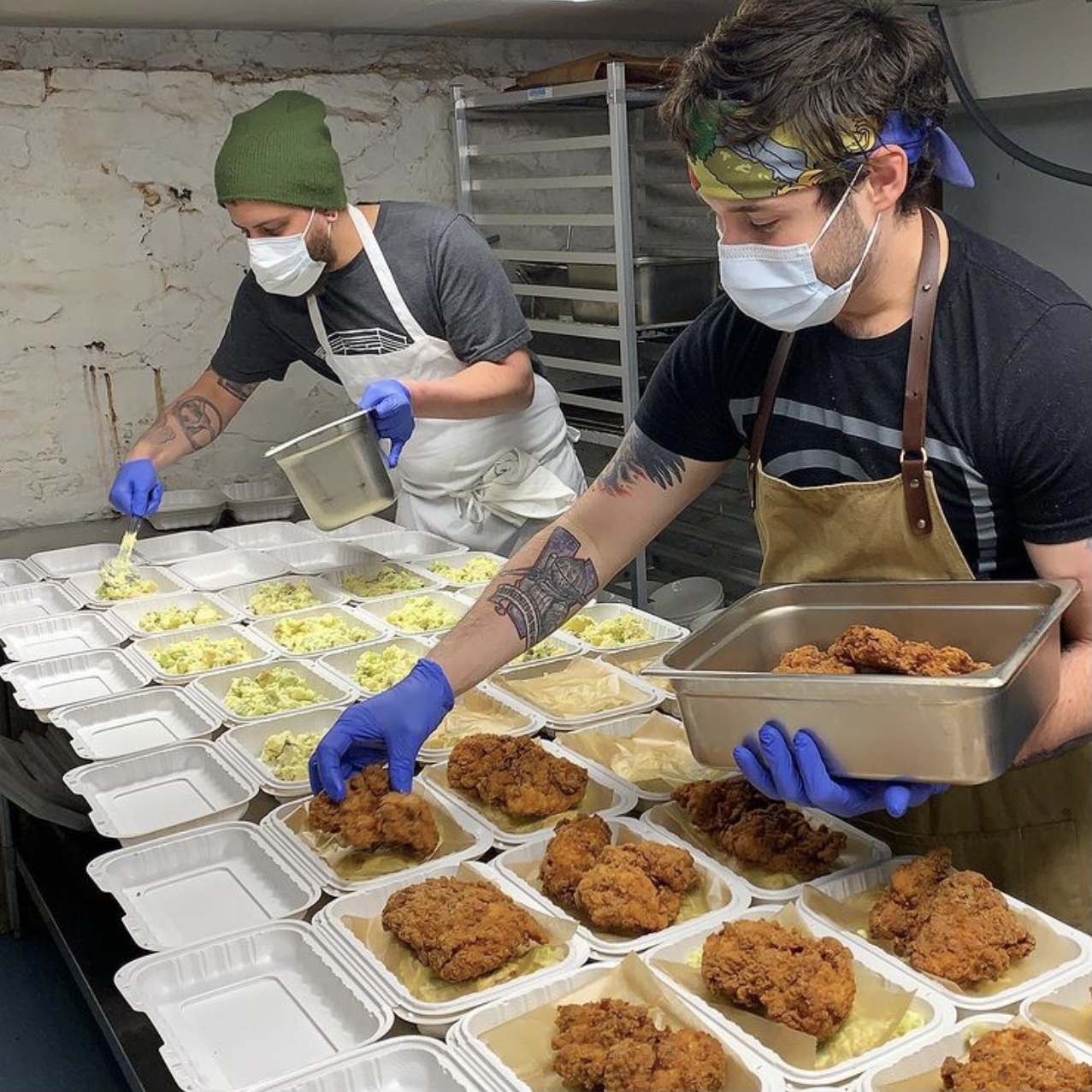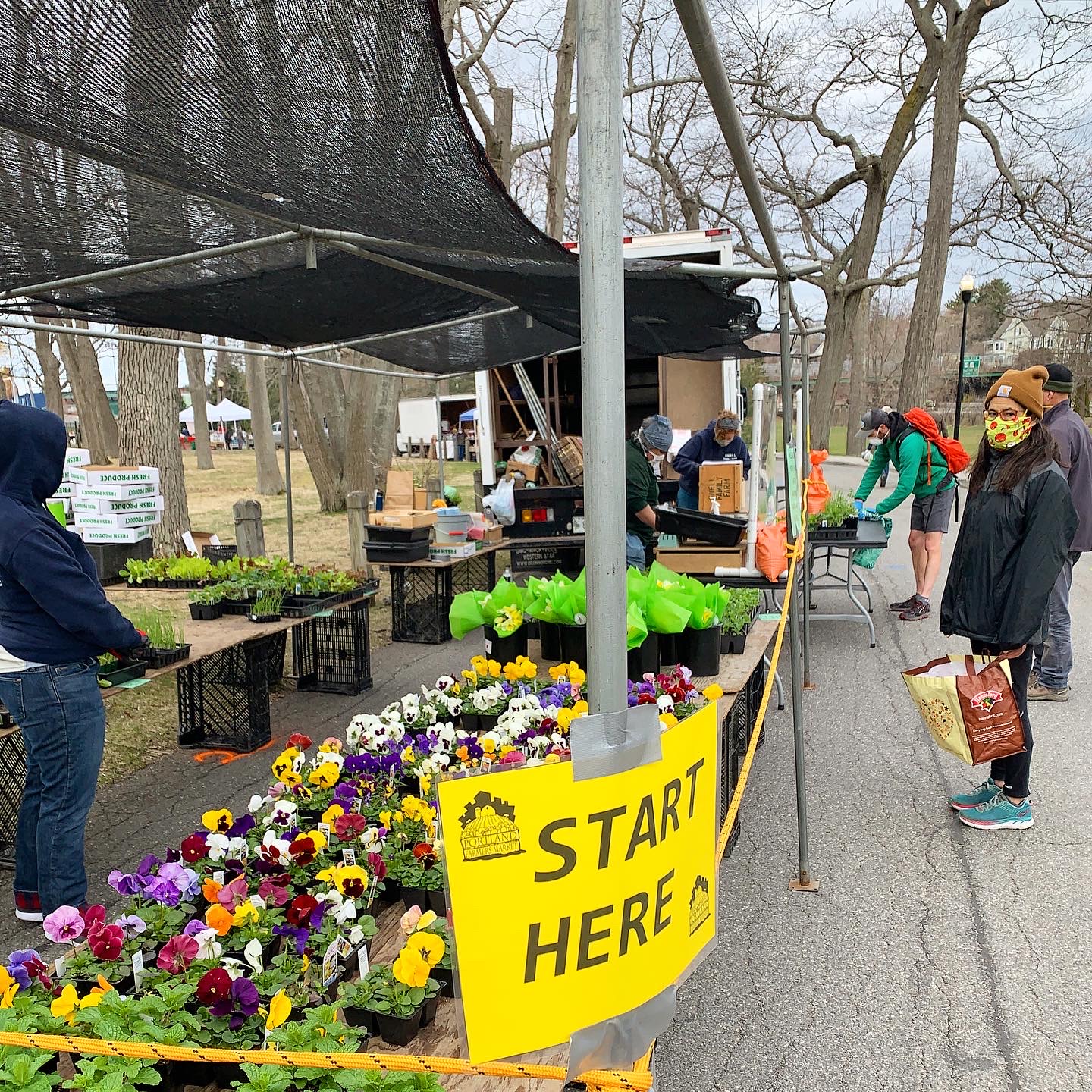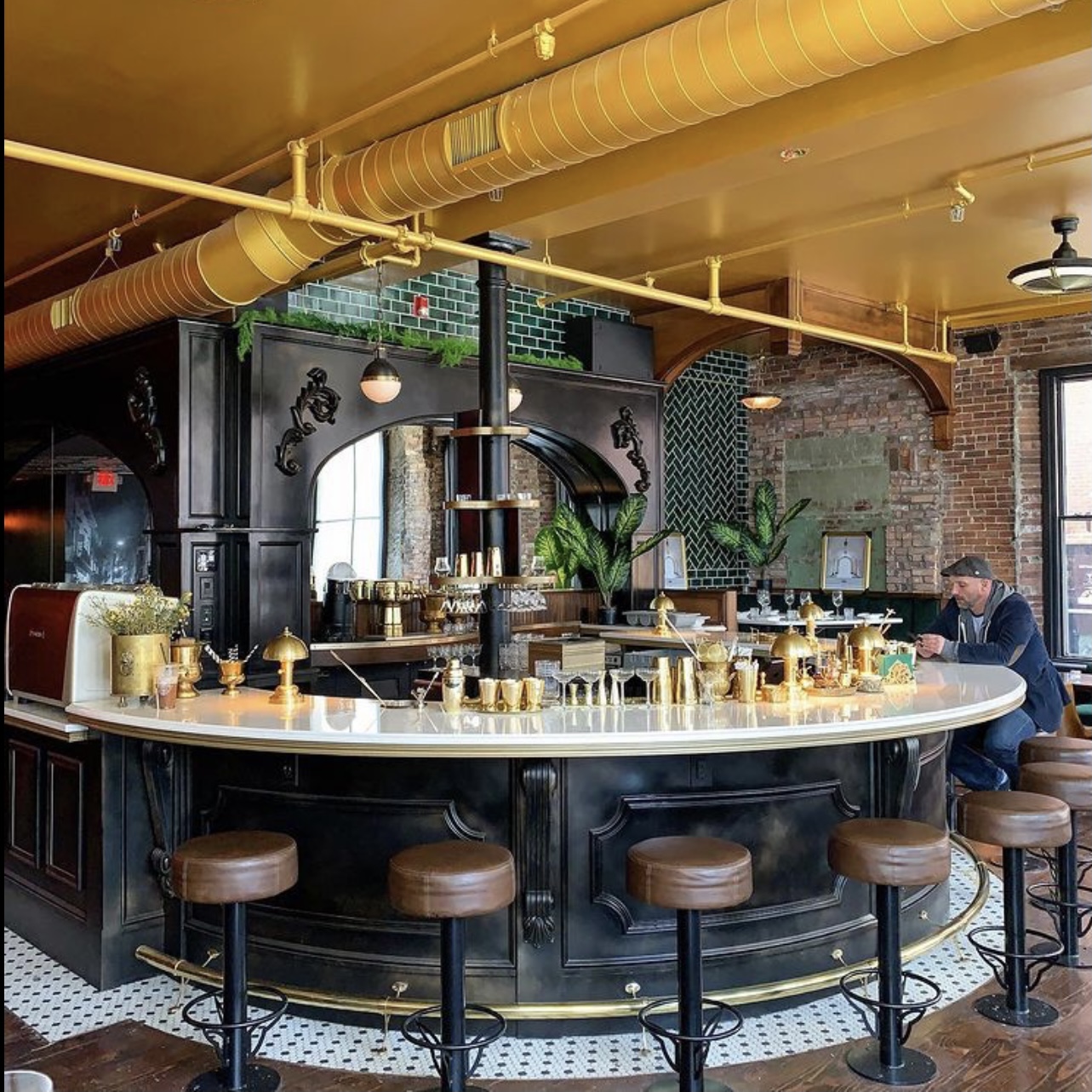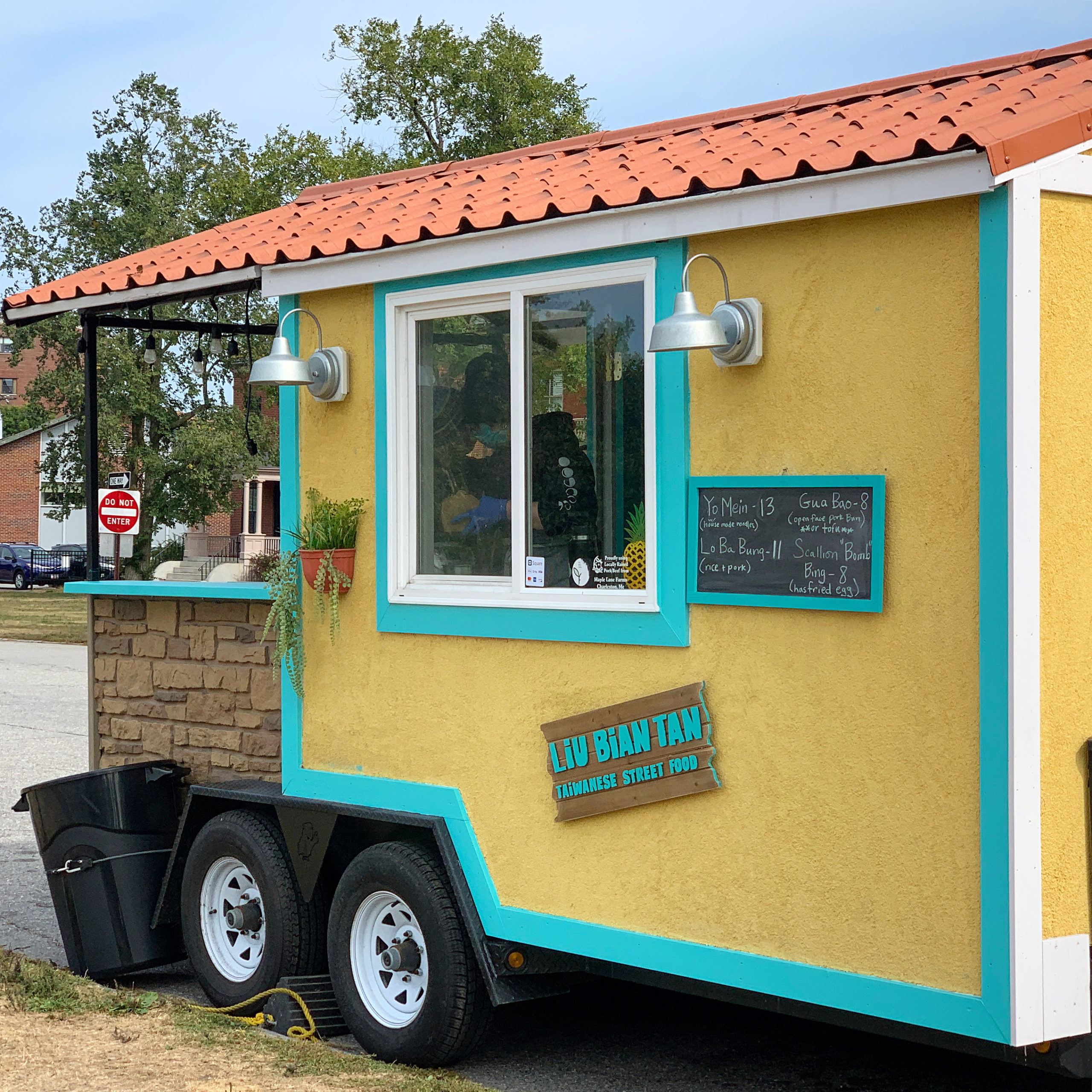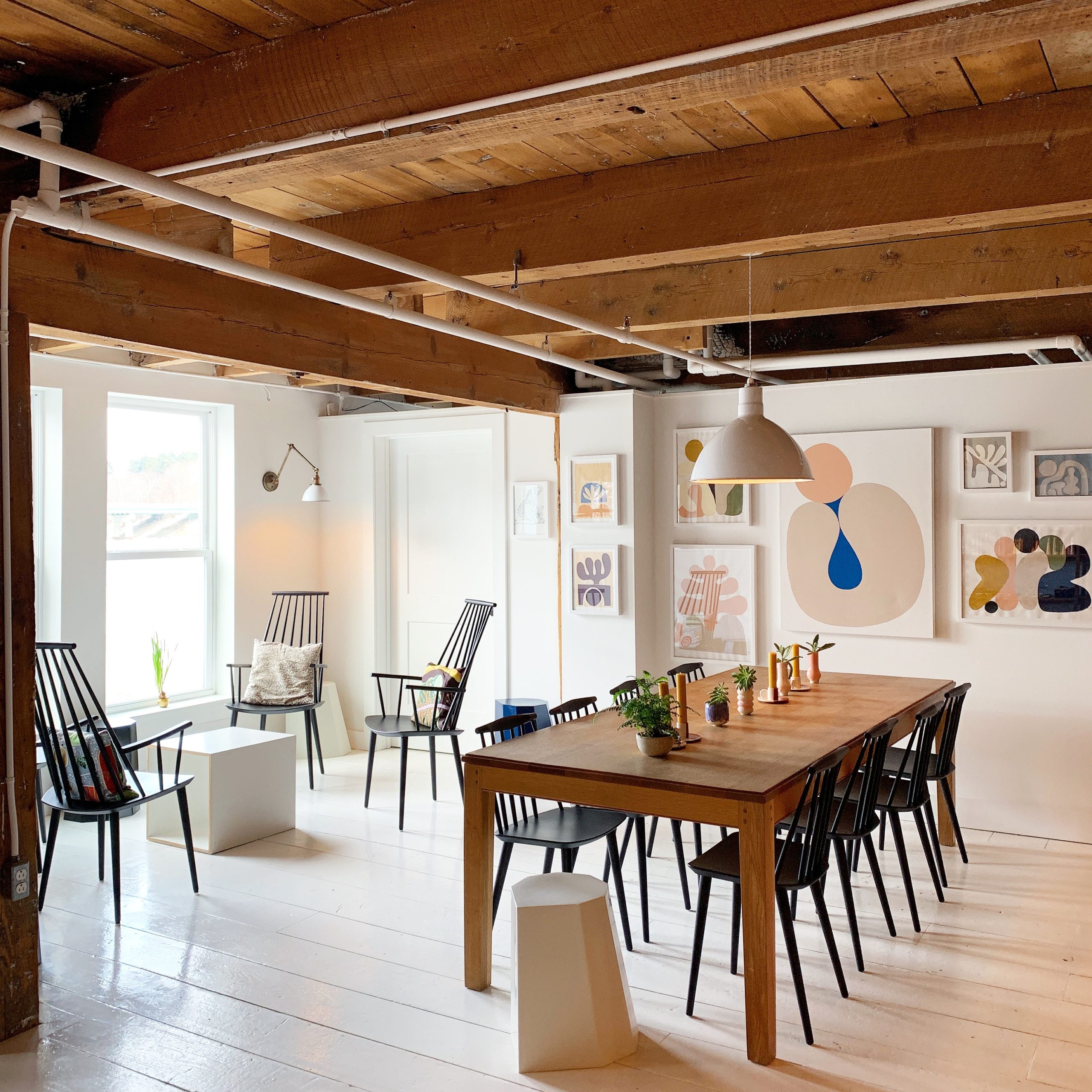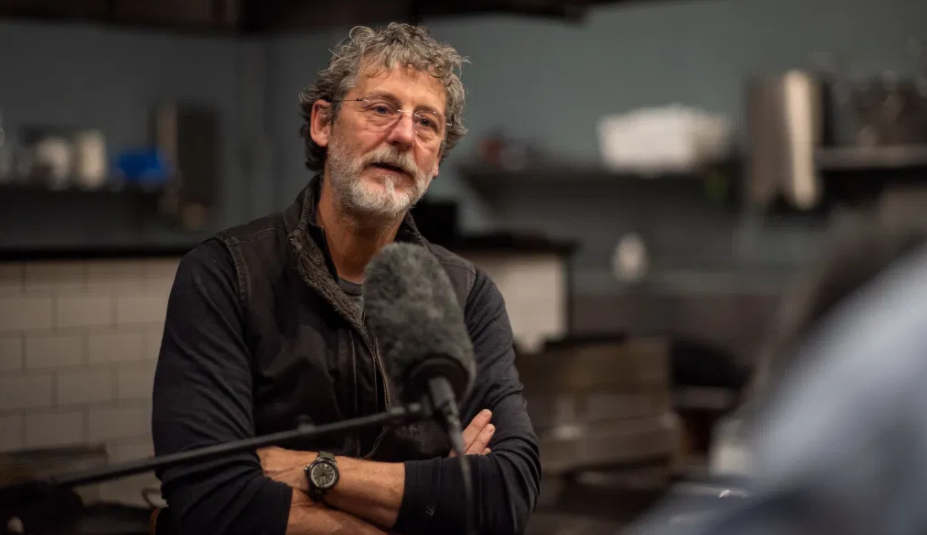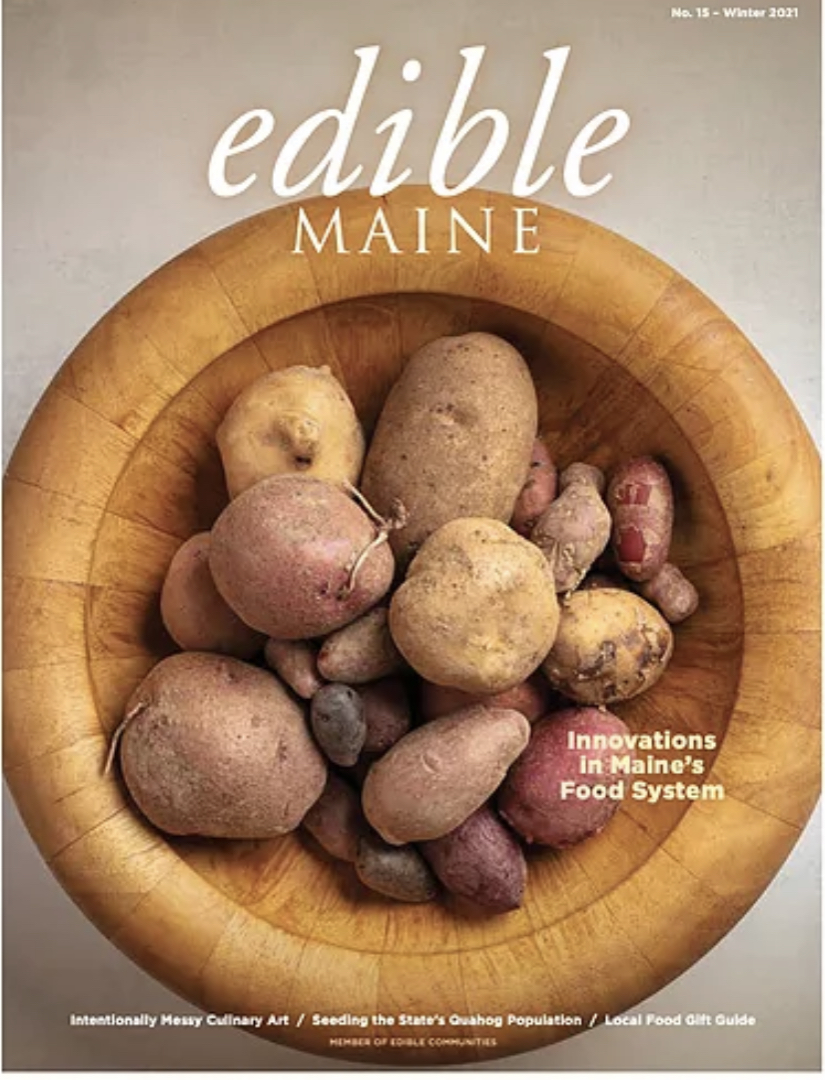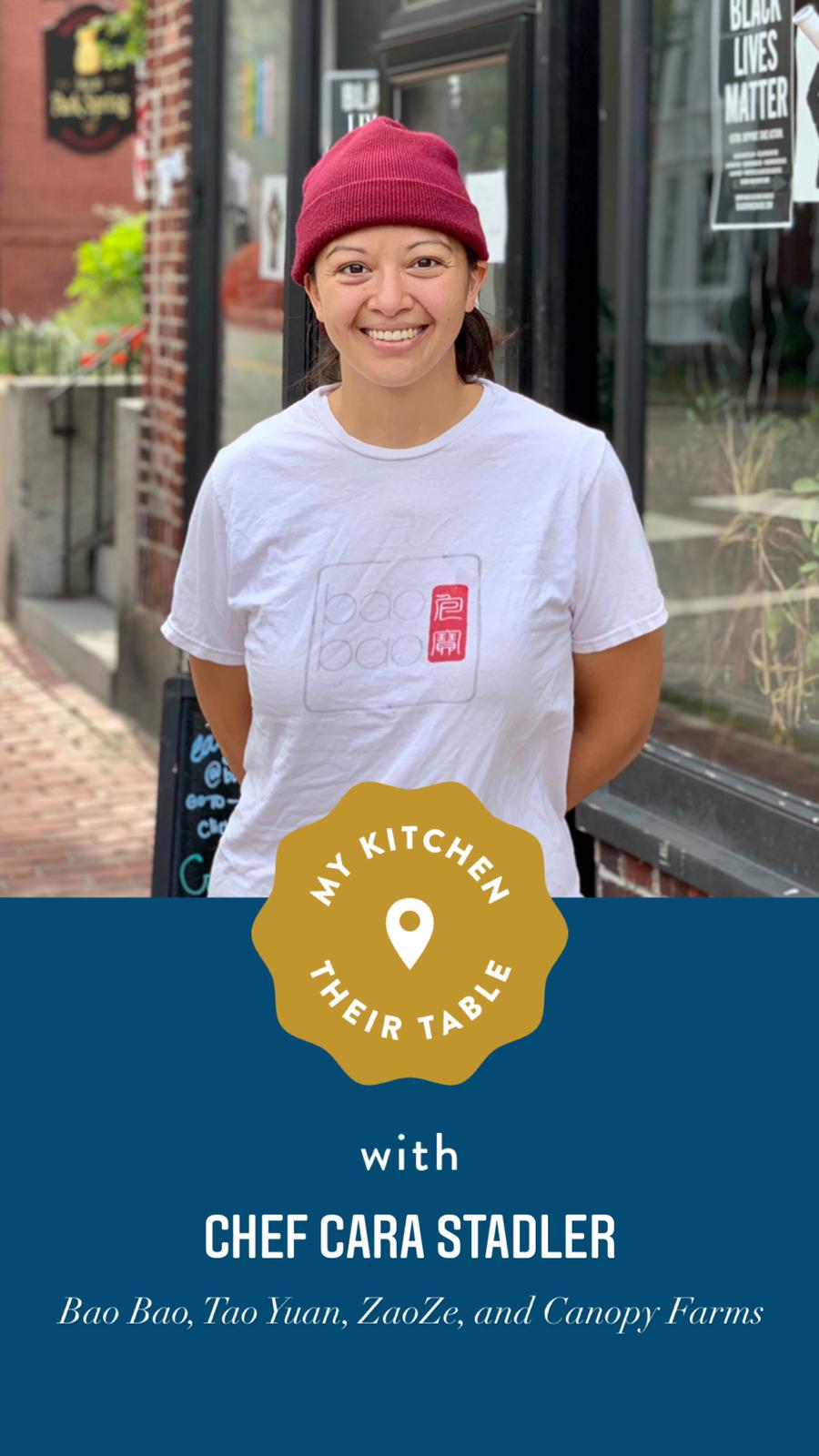Welcome to the January edition of My Kitchen, Their Table, an interview series with the chefs and culinary professionals who work hard to satisfy our small city’s big appetite. This month we’re featuring an interview with Thomas Takashi Cooke, co-owner of Izakaya Minato. Photos and videos will continue to expand on the story throughout the rest of the month on instagram, so stay tuned [watch Cooke make Kani Dofu soup].
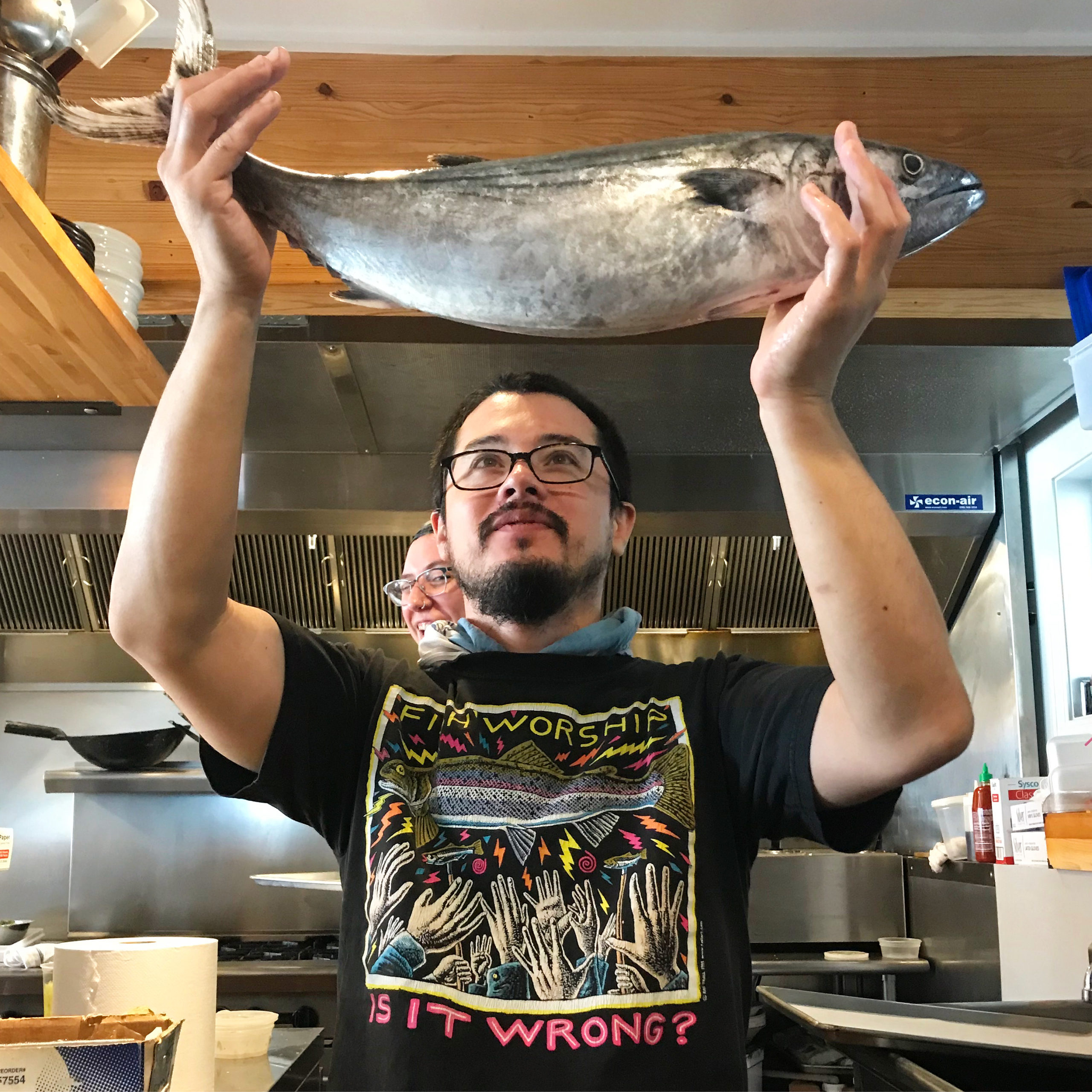 Thomas Takashi Cooke didn’t always plan on being a chef. He left his home in Tokyo to attend University of California in Berkeley and pursue a career in engineering. “I wasn’t that into it,” he says, chuckling. During his senior year, he signed up for kitchen duty to fulfill work hours that the student housing cooperative required only to discover he quite enjoyed cooking. After graduating, he landed his first restaurant job at Manpuku in Berkeley and never looked back.
Thomas Takashi Cooke didn’t always plan on being a chef. He left his home in Tokyo to attend University of California in Berkeley and pursue a career in engineering. “I wasn’t that into it,” he says, chuckling. During his senior year, he signed up for kitchen duty to fulfill work hours that the student housing cooperative required only to discover he quite enjoyed cooking. After graduating, he landed his first restaurant job at Manpuku in Berkeley and never looked back.
Cooke spent fourteen dedicated years at Tsunami, a stylish Japanese restaurant in San Francisco. There, he learned from his fellow chefs, got the inspiration for his famous uni on a spoon dish, and met his future wife, Elaine Alden. With a dream of opening their own restaurant, the two headed to Tokyo where Cooke trained at an izakaya and Alden immersed herself in the culture. After three months, they returned to San Francisco, but felt it wasn’t a feasible place to open a restaurant. It only took a week’s long vacation to Portland to call the city their new home.
On January 31, 2017 Izakaya Minato opened their doors to a crowd eager to share plates of Japanese comfort food and stay for the sake, as the name “izakaya” suggests. The small dining room seats eighteen people while the front room has just one communal table and eight bar seats. Believe it or not, the space would be considered large for a typical izakaya. Unfortunately, low ceilings and cramped tables just aren’t conducive to the times, so for now Izakaya Minato is open with limited outdoor dining, takeout, and the occasional omakase to-go.
Read the full interview with Chef Cooke to discover what izakayas are like in Japan, the most valuable lesson he learned while working there, where he goes in Maine for authentic Latin American cuisine, which Portland restaurants he frequents most, and the dish he shared with his wife that made for a long-lasting memory.
THE INTERVIEW
AA: What is the most valuable thing you learned while training at an izakaya in Tokyo?
TC: I realized I was good enough to open my own izakaya. I grew up in Japan and cooking there is the gold standard. I didn’t want to open an izakaya and say, “Well, it’s good for America.” Cooking in Tokyo gave me confidence.
AA: What are izakayas like in Japan?
TC: Every train station has an izakaya. It’s more like a commuters bar than a restaurant. It’s embedded in the work culture there. Most aren’t even open on the weekends. Almost every izakaya has a seating charge of three to five dollars. It keeps people from bar hopping. You stay and you drink.
AA: Who has been crucial to your success as a chef and restaurant owner?
TC: Elaine for sure. She does a lot. She handles the bookkeeping and social media, manages the staff, and works the floor. She also comes up with good ideas, like the omakase to-go. I also learned a lot from the chefs and owner of Tsunami.
AA: In what ways can you still provide an intimate dining experience during the pandemic?
TC: The shared plates experience definitely helps. You have to break bread together, so to speak. At first, we were only doing takeout, but then we added a few tables for outdoor dining. It’s cold, but the Mainers tough it out. Eventually there will be a place for intimate settings again, but right now is just not the time.
AA: Where do you get inspiration for your menu?
TC: There are many books with different ideas from the numerous izakayas in Japan. I try to recreate recipes with whatever is in-season here. I’ll get an ingredient and have a dish in mind and then work with my staff to make it happen. The menu isn’t all me. My cooks make suggestions and help make everything better. It should never be just about you.
AA: What is one of your favorite dishes on your menu?
TC: In the summer, we get mackerel that I salt and cure in vinegar, then sear, and serve with wasabi and soy sauce. My other favorite is bonito, but we don’t get it very often. I serve it with homemade ponzu, red onion, and ginger. I like anything that is local and seasonal. Right now, we have Maine scallops. I think they’re best raw, so it’s on the sashimi plate, but we also have scallops in the kakiage.
AA: Where do you recommend going for takeout?
TC: I like Quiero Cafe. It’s casual, but very good. In terms of authenticity and classic Latin American flavors, it’s the closest Portland has to the taquerias I loved in San Francisco. I also really like the burgers at Black Cow. [take a virtual visit to Quiero Cafe]
AA: What is one of your go-to restaurants in Portland?
TC: Baharat. It’s hard to pick a favorite dish because everything is so good! The hummus, baba ganoush, falafel, even the rice is great; it goes so well with all of Chef Clay’s food. I even like the haloumi and I’m not much of a cheese guy.
AA: Where do you go to celebrate a special occasion?
TC: Isa Bistro. I love the pork chop and the tres leches cake. I also strongly recommend the chiles rellenos from their Mexican Monday menu. It’s his grandmother’s recipe.
AA: Where have you had a particularly memorable meal in Portland?
TC: Elaine and I had the coq au vin at Chaval. Chef Damian serves it in a small Le Creuset. The experience of sharing a delicious pot of stew in a beautifully lit space was very intimate and memorable. [watch Damian Sansonetti make coq au vin]
This interview has been edited and condensed for clarity.
A few notes on the restaurants mentioned in this article: Quiero Cafe and Black Cow are open for limited indoor dining, takeout and delivery via 2DineIn, Baharat is open for takeout from their menu and food from their grab-n-go shop, Isa Bistro is open for takeout or delivery via CarHop, and Chaval is open for takeout, delivery via CarHop, and outdoor dining in the greenhouses and heated patio.
Previous editions of My Kitchen Their Table have featured Courtney Loreg, Chad Conley Atsuko Fujimoto, Matt Ginn, Jordan Rubin, and Cara Stadler.
The My Kitchen Their Table series is brought to life through the talent and hard work of food writer Angela Andre, and the generous sponsorship by Evergreen Credit Union and The Boulos Company.
